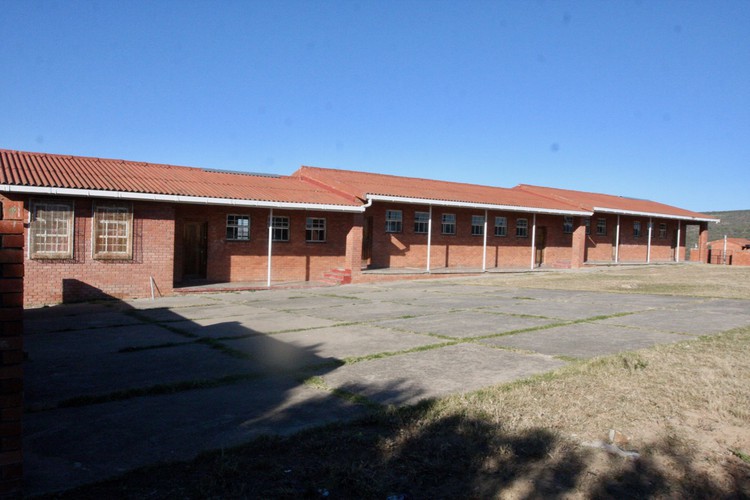
Mhala Primary School in Xesi Village, East London, has been shut in a school “rationalisation” process. Photo: Mbulelo Sisulu
29 June 2017
Since 2015, the Eastern Cape government has undertaken a process of rationalising the number of schools in its province. It has been closing schools it deems unviable, those with fewer than 150 pupils, and merging them with other schools. The process has had cautious support from civil society organisations. However, its poor implementation has had serious consequences for some learners.
Mhala Primary School in Xesi Village, outside East London, was one of the schools not reopened after the Easter holidays. Its more than 60 learners were to be transported to Lungisa Primary School, seven kilometres away, and taxi owner Zamekile Ncede was engaged by the education department.
Ncede says he was not paid. He says he was told there was a crisis with school transport that needed to be solved. After three weeks, he stopped transporting the learners. He was paying the drivers out of his own pocket.
Parents then started paying R400 per child per month for transport. But not all parents can afford this.
Notsukumetse Hlekani, grandmother of ten-year-old Liyema, said, “Our kids used to walk a few minutes to school and we were not paying even a cent. But now, our government decided to close our school without even consulting us as parents of these kids. Now, my granddaughter is no longer attending school because I cannot afford to pay for transport.”
She said: “It was my dream to send my granddaughter to school so that she can have a better future like other kids. But our government decided to limit our kids to get education.”
Nolusapho Potwana, grandmother of seven-year-old Kuhle Potwana, says her grandson is now looking after livestock because there is no money for transport. “Some kids tried to go to school by foot,” she said, “but they stopped because the distance is long for them.”
Children who walk to Lungisa Primary have to cross the R72.
Nomboniso Dama, 77, is paying the R400 for her grandchild. “It is not that I can afford to pay this, but I pay it because I want my grandchild to get education. There are times where we live at home without food because of this school transport.”
Mfuniseli Dama, 72, said, “Most of the children here are not educated because we do not have a high school [nearby]. Government does not transport our kids who want to go to high school.”
Spokesperson for the Eastern Cape Department of Education Mali Mtima said, “We handed letters to these schools saying they must give reasons why their school must not be closed. These letters we handed [over] last year, but I cannot remember the date. So these schools were given 30 days to reply in this matter.”
Mtima said that teachers have been relocated to other schools. “As we speak, the education and transport departments are busy trying to solve this problem so that kids can be at school and get education. Yes, we are aware about the situation of Mhala Primary school,” he said.